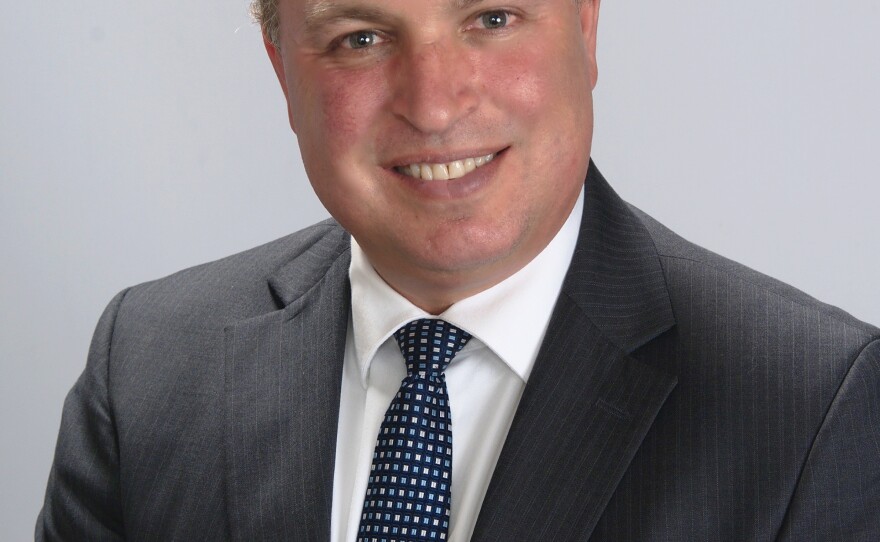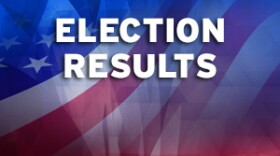UPDATE: 12:24 a.m., June 8, 2016
Election results trickled in early Wednesday for Chula Vista's first District 4 council race, fairly evenly divided among the four candidates. Rudy Ramirez held the strongest lead but with less than a quarter of precincts reporting.
UPDATE: 8:35 p.m.: Vote divided in first results of the night.
Candidate Rudy Ramirez led, though with just 4 percent of precincts counted. He earned 34 percent of the vote, with Mike Diaz following him at 26 percent. Eduardo Reyes had a healthy 22 percent with Soto trailing at 18 percent.
Original post:
For the first time, voters in southwestern Chula Vista will choose a City Council member in District 4 from a list of four fellow residents: Mike Diaz, Rudy Ramirez, Eduardo Reyes and Emmanuel Soto.
Last summer, the Chula Vista City Council voted unanimously to divide the city into four council districts. Candidates must now live in the district they hope to represent. The seats for District 4 and District 3 will be filled this year.
The top two vote-getters in District 4 on Tuesday will face each other in the November election. Because only two candidates qualified in City Council District 3, the election for that seat will be in November.
Some residents of southwestern Chula Vista say the City Council has long focused resources on wealthier areas such as Eastlake, neglecting District 4, which contains the city’s largest concentration of Latinos. They hope district elections may level the playing field.
District 4 faces problems such as rising homelessness, crumbling sidewalks and other aging infrastructure. The four candidates mostly agree on how to address them, except when it comes to a recent proposal by Mayor Mary Casillas Salas to put a half-cent sales tax increase on the November ballot to address aging infrastructure.
Mike Diaz is a retired Escondido firefighter who has lived in Chula Vista most of his life. He ran for City Council in 2000 but was defeated by Jerry Rindone.
“I was out there serving my community for over 30 years, putting my life on the line every day, and I want to continue that service to the Chula Vista community as a City Council member,” he said.
Diaz supports a sales tax increase only if it’s earmarked for certain purposes and has an expiration date.
Another candidate is Rudy Ramirez, a metal fabrication entrepreneur who served on the Chula Vista City Council for two consecutive terms, beginning in 2006.

“This is my home, this is where I raised my family,” he said. “I’ve also had the experience of being on the council and understanding how municipal government works.”
Ramirez opposes a sales tax increase, calling it an “expensive temporary fix for a long-term problem.” He said the city must first address sales tax leakage and poor land use decisions.
During his campaign, about 20 of his supporters met outside Chula Vista City Hall to protest the campaign of another candidate, Eduardo Reyes, who moved here from Eastlake about nine months ago.

Chula Vista doesn’t require candidates to have lived in the district for a certain amount of time — they just have to be registered voters when they file their nomination papers.
Reyes said he moved to southwestern Chula Vista because he cares about the community and has a long history of working in District 4. He is the principal of Bonita Vista Middle School and president of the Chula Vista Elementary School District board.
“My goal is not just to help the individual but to make a difference in future generations,” he said.
Reyes supports a sales tax increase due to what he called “a dire need” to make infrastructure improvements.

A final candidate for the District 4 seat, Emmanuel Soto, also has an education background. He teaches music in the Chula Vista Elementary School District and is a parks and recreation commissioner.
“I think it’s important to not only look like your district or sound like your community, but to really understand the issues and the people,” he said.
Soto opposes a sales tax increase, calling it a “burden” on residents.
“We should first be effective stewards of our current tax dollars,” he said.
Soto added that he would implement economic growth policies to increase revenue for the city and fund infrastructure improvements.







